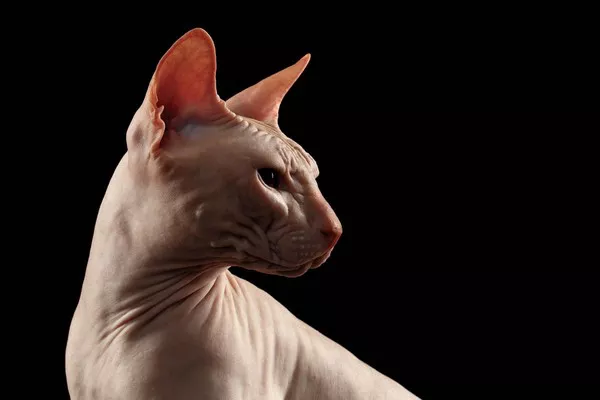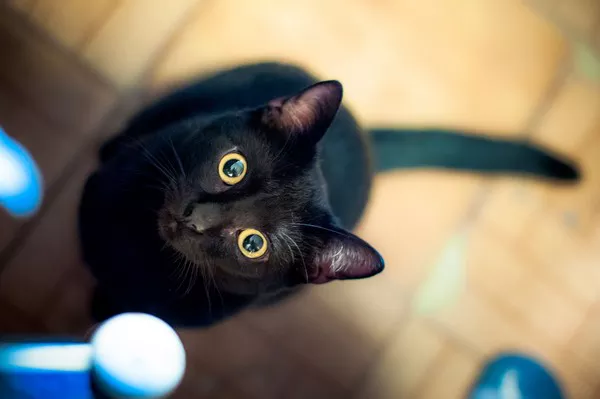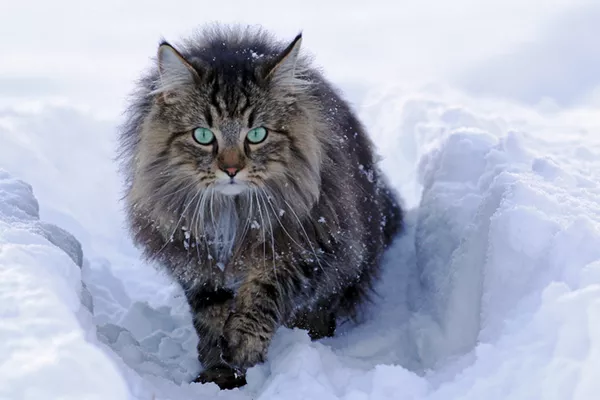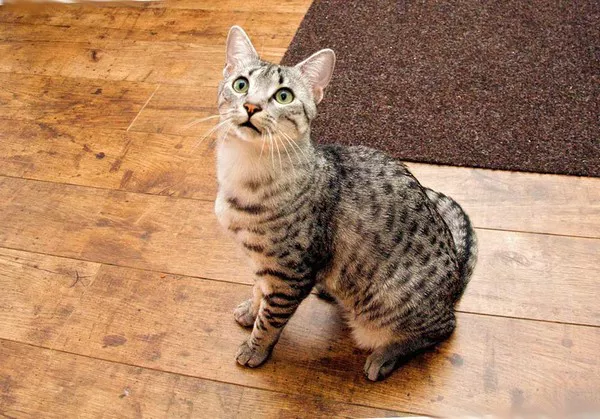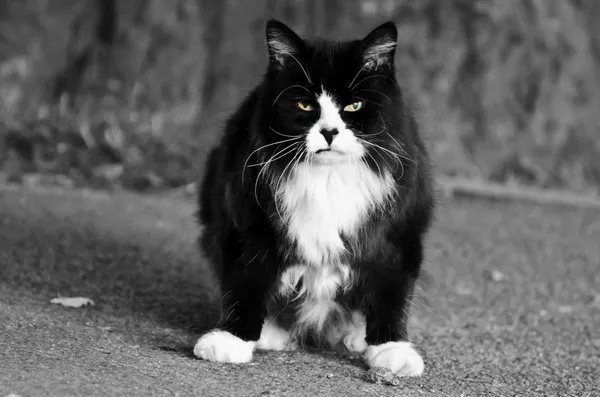Sphynx cats, with their striking appearance and affectionate nature, have captured the hearts of cat lovers around the world. These unique felines, known for their hairless bodies and large ears, have a fascinating history and distinct personality traits. In this comprehensive guide, we explore everything you need to know about Sphynx cats, from their origins and physical characteristics to their care and temperament.
Origins and History
Contrary to popular belief, Sphynx cats are not entirely hairless. They are covered in a fine layer of downy fur that gives them a soft and warm texture to the touch. The breed’s hairlessness is the result of a natural genetic mutation that occurred in domestic cats in the 1960s.
The first recorded instance of a hairless cat was in Toronto, Canada, in 1966. A domestic cat named Prune gave birth to a hairless kitten, which was later bred with other cats to establish the Sphynx breed. The breed was further developed through selective breeding programs, incorporating other cat breeds such as the Devon Rex and American Shorthair to improve genetic diversity.
Physical Characteristics
Sphynx cats are known for their distinctive appearance, characterized by the following physical features:
Hairlessness: Sphynx cats have a virtually hairless body, although they may have a fine layer of downy fur on their skin. Their lack of fur exposes their wrinkled skin, which adds to their unique appearance.
Large Ears: Sphynx cats have large ears that are proportionate to their head size. Their ears are typically upright and alert, giving them an alert and curious expression.
Muscular Build: Despite their hairlessness, Sphynx cats have a muscular and athletic build. They are agile and active cats that enjoy climbing, jumping, and exploring their surroundings.
Wedge-Shaped Head: Sphynx cats have a distinctive wedge-shaped head with prominent cheekbones and a rounded skull. Their facial features are well-defined, with large eyes and a slightly upturned nose.
Warm Skin: The skin of Sphynx cats is warm to the touch due to the absence of fur. Their body temperature is regulated through their skin, which may feel soft and supple.
Temperament and Personality
Sphynx cats are renowned for their friendly and affectionate nature. They are social and outgoing cats that enjoy being around people and other pets. Some key personality traits of Sphynx cats include:
Affectionate: Sphynx cats crave human attention and affection, often seeking out cuddles and lap time with their owners. They enjoy being petted and stroked and may even snuggle under the covers with their owners at night.
Playful: Despite their dignified appearance, Sphynx cats have a playful and mischievous side. They enjoy interactive play sessions with toys, puzzles, and games that stimulate their minds and keep them entertained.
Curious: Sphynx cats are naturally curious and inquisitive creatures. They enjoy exploring their environment, investigating new sights and sounds, and engaging in activities that challenge their intellect.
Vocal: Sphynx cats are known for their vocal nature and may communicate with their owners through a variety of sounds, including meows, chirps, and purrs. They are not shy about expressing their needs and desires.
Intelligent: Sphynx cats are highly intelligent and can be trained to perform tricks, respond to commands, and even walk on a leash. They enjoy mental stimulation and may appreciate puzzle toys and interactive games that engage their minds.
Care and Maintenance
While Sphynx cats may not require grooming in the traditional sense, they still have unique care needs that should be addressed by their owners:
Bathing: Due to their lack of fur, Sphynx cats produce more oil on their skin, which can lead to greasiness and body odor. Regular bathing with a gentle pet shampoo is recommended to keep their skin clean and healthy.
Skin Care: Sphynx cats are prone to dry skin and may require moisturizing to prevent flakiness and irritation. Use a pet-safe moisturizer or oil, such as coconut oil or vitamin E oil, to keep their skin hydrated.
Sun Protection: Sphynx cats have sensitive skin that is susceptible to sunburn and UV damage. Keep them indoors during peak sunlight hours and apply pet-safe sunscreen to exposed areas if they spend time outdoors.
Nail Care: Trim your Sphynx cat‘s nails regularly to prevent overgrowth and reduce the risk of scratching furniture or injuring themselves. Provide a scratching post or pad to satisfy their natural scratching instincts.
Dental Care: Like all cats, Sphynx cats benefit from regular dental care to maintain oral health. Brush their teeth regularly with a pet-safe toothpaste and provide dental treats or toys to promote healthy gums and teeth.
Health Considerations
While Sphynx cats are generally healthy and robust, they may be prone to certain health conditions, including:
Skin Issues: Sphynx cats are susceptible to skin conditions such as dermatitis, acne, and sunburn due to their lack of fur. Regular skin care and monitoring are essential to prevent and address skin problems.
Respiratory Issues: Sphynx cats may be prone to respiratory infections and upper respiratory tract issues due to their large ears and flat faces. Keep their environment clean and free of irritants to minimize the risk of respiratory problems.
Dental Problems: Sphynx cats may be predisposed to dental issues such as gingivitis and periodontal disease. Practice regular dental care and schedule professional dental cleanings as recommended by your veterinarian.
Hypertrophic Cardiomyopathy (HCM): Some Sphynx cats may inherit a genetic predisposition to hypertrophic cardiomyopathy, a common heart condition in cats. Regular veterinary check-ups and screenings can help detect and manage HCM.
Temperature Sensitivity: Sphynx cats may be more sensitive to temperature extremes due to their lack of fur. Keep them warm and cozy in cold weather and provide access to cool, shaded areas in hot weather to prevent overheating.
See Also: How Much Should I Feed My Sphynx Cat
Conclusion
Sphynx cats are truly unique and captivating creatures with their hairless bodies, large ears, and affectionate personalities. While they may require special care and attention compared to other cat breeds, their playful nature and loving disposition make them cherished companions for devoted cat owners. By understanding their origins, physical characteristics, temperament, care needs, and health considerations, cat lovers can provide the best possible care for their Sphynx feline friends and enjoy a fulfilling and rewarding relationship for years to come.

